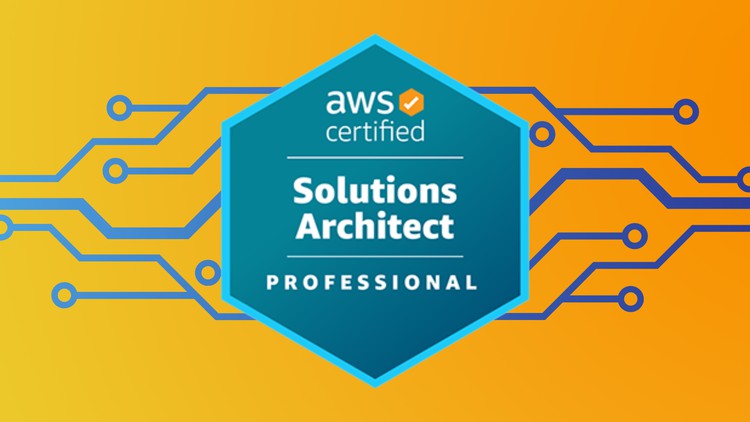Description
Introduction of Azure Cloud Architect
Azure is a leading cloud platform that enables businesses to design, implement, and scale powerful cloud-based solutions. This course is designed for professionals aiming to become Azure Cloud Architects. You will gain expertise in designing, deploying, and managing scalable and secure cloud solutions on Azure. The course covers key services, best practices, and architectural patterns needed to build enterprise-grade cloud solutions that meet business requirements.
Prerequisites
- Basic knowledge of cloud computing concepts
- Familiarity with networking and operating systems
- Experience with development or IT infrastructure (helpful but not required)
- Microsoft Azure Fundamentals or equivalent knowledge
Table of Contents
- Introduction to Azure Cloud Architecture
1.1 Overview of Microsoft Azure
1.2 Cloud Computing Models (IaaS, PaaS, SaaS)
1.3 Key Azure Services for Cloud Architects
1.4 Benefits and Challenges of Cloud Solutions
1.5 Azure’s Global Network and Data Centers - Designing Scalable Cloud Solutions on Azure
2.1 Understanding Azure Resource Manager (ARM)
2.2 Best Practices for Designing Scalable Applications
2.3 Vertical vs Horizontal Scaling in Azure
2.4 Using Azure Virtual Machines and App Services for Scalability
2.5 Creating Load Balancing and Auto-scaling Architectures - Building Secure and Compliant Solutions
3.1 Implementing Azure Security Best Practices
3.2 Identity and Access Management with Azure AD
3.3 Designing Secure Network Architecture with Network Security Groups and VPN
3.4 Ensuring Compliance with Azure Governance Tools (Blueprints, Policy, Cost Management)
3.5 Data Encryption and Key Management in Azure - Cloud Networking and Hybrid Architectures
4.1 Introduction to Azure Virtual Networks and Subnets
4.2 Implementing Azure VPN and ExpressRoute for Hybrid Connectivity
4.3 Configuring Network Security and Firewall Rules in Azure
4.4 Designing Multi-Region Solutions and Global Distribution with Traffic Manager
4.5 Integrating On-Premises Infrastructure with Azure via Hybrid Cloud - Managing Data and Storage in Azure
5.1 Overview of Azure Storage Options (Blob, Disk, Queue, Table Storage)
5.2 Designing Scalable and Redundant Storage Solutions
5.3 Implementing Azure SQL Database and Cosmos DB
5.4 Data Migration Strategies to Azure (Lift-and-Shift, Re-platforming)
5.5 Using Azure Data Lake for Big Data Analytics - Application Architecture and Development on Azure
6.1 Designing Serverless Applications with Azure Functions
6.2 Implementing Microservices with Azure Kubernetes Service (AKS)
6.3 Building RESTful APIs using Azure API Management(Ref: AWS Data Engineering: Architecting Robust Data Solutions in the Cloud)
6.4 Continuous Integration and Continuous Deployment (CI/CD) on Azure
6.5 Using Azure DevOps for Automated Application Lifecycle Management - Monitoring and Optimizing Azure Cloud Solutions
7.1 Implementing Monitoring with Azure Monitor and Log Analytics
7.2 Using Azure Application Insights for Performance Monitoring
7.3 Cost Optimization and Resource Management with Azure Cost Management
7.4 Designing for High Availability and Disaster Recovery
7.5 Best Practices for Cost-Effective Scaling and Maintenance - Implementing Azure AI and Machine Learning Solutions
8.1 Overview of Azure AI and Machine Learning Services
8.2 Building Intelligent Applications with Azure Cognitive Services
8.3 Automating Machine Learning with Azure Machine Learning
8.4 Designing and Deploying AI Models in Azure
8.5 Integrating AI into Scalable Cloud Solutions - Cloud Solution Design Patterns and Best Practices
9.1 Common Cloud Solution Design Patterns
9.2 Event-Driven Architecture with Azure Event Grid
9.3 Designing Microservices with Azure Service Fabric
9.4 Designing for Fault Tolerance and Resilience in Azure
9.5 Cloud-Native Design Patterns for Modern Applications - Advanced Topics in Azure Cloud Architecture
10.1 Designing Multi-Cloud and Hybrid Cloud Environments
10.2 Implementing Azure IoT Solutions for Scalable Data Management
10.3 Building Real-Time Streaming Solutions with Azure Event Hubs and Stream Analytics
10.4 Architecting for Edge Computing with Azure IoT Edge
10.5 Cloud Architecture in Highly Regulated Industries (Finance, Healthcare) - Azure Certification Preparation and Career Path
11.1 Overview of Microsoft Certified: Azure Solutions Architect Expert
11.2 Preparing for the Azure Architect Exam (AZ-303 & AZ-304)
11.3 Tips for Passing Certification Exams and Building a Portfolio
11.4 Continuing Education and Resources for Azure Cloud Architects
11.5 Career Paths and Growth as an Azure Architect
Conclusion
By the end of this course, you will be equipped with the knowledge and skills to design and implement scalable, secure, and cost-effective cloud solutions on Microsoft Azure. From cloud infrastructure management to advanced AI integrations, you’ll be prepared to handle all aspects of Azure cloud architecture. Whether you’re aiming to become a certified Azure Cloud Architect or enhancing your organization’s cloud capabilities, this course provides you with practical tools, strategies, and best practices that ensure your cloud solutions are robust, optimized, and future-proof.






Reviews
There are no reviews yet.